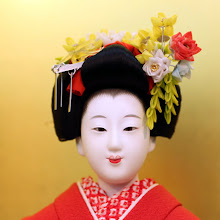Bushido is translated at the “Way of the Warrior” and it was the strict code of honor that was adhered to by the Samurai. What makes this code so mysterious and important was that it developed over centuries of warriors and it was code that was never spoken of and never written. It developed out of the honor and morality that was prized by the samurai and became something that every samurai strived to live by.
The research that had been done in Bushido traces a distinct set of values that can be traced down through the centuries, despite location, lineage, class and even writing style. As far back as the 8th century a common set of ideals can be seen throughout the samurai of Japan. While it was rare for these values to ever be written down, it can be seen in the written communication and it the way that the samurai lived their lives.
The Bushido is the evolution of the samurai code that has existed for centuries. This code stressed honor above all else and that honor is achieved and maintained through loyalty, frugality, and of course a mastery of various forms of martial arts. Bushido contains this and the extra addition that if a samurai ever lost his honor he could regain it by committing seppuku or ritual suicide.
This code was widely practiced by the samurai who at one point equated to about 10% of the Japanese population. They were divided into both “high” and “low” samurai, high samurai were allowed to ride a horse and low samurai were allowed to carry two swords but not to ride a horse. Both levels of samurai were expected to uphold the ideals of Bushido.
The Bushido is known to have seven virtues which are Rectitude, Courage, Benevolence, Respect, Honesty, Honor and Loyalty. It was also sometimes the practice to include Wisdom, Care for the Aged and Filial Piety. But despite these honorable intentions and goals, it was all for one thing and that was to die a good death with one’s honor intact.
But despite the popularity of Bushido, there were a number of notable warriors who held the beliefs in disdain. The reason for this was that according to the tenets of Buddhism the warrior could reap no reward in the afterlife because as due their title their life involved killing. So even if one upheld Bushido it was the belief in Buddhism that they would receive no reward in the afterlife. It was for this reason that the soul of a warrior suffering in Hell or as a lingering spirit is a common image in Japanese art and literature.
Saturday, January 9, 2010
Subscribe to:
Post Comments (Atom)

No comments:
Post a Comment